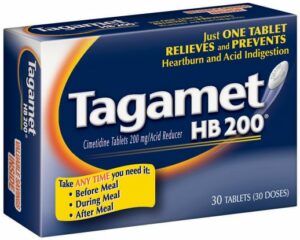Abstract:
A phase I study (open trial) of bicalutamide (Casodex), a non-steroidal antiandrogen, was conducted on 16 patients with prostatic cancer (stage C to D). The patients were given 10, 30, 50, 80 or 100 mg of bicalutamide orally daily for 12 weeks. Adverse reactions were observed in 8 out of 16 patients, but almost all were mild. Breast pain, gynecomastia and hot flushes were observed in 6 patients. Adverse reactions regarding liver function tests were observed in 3 patients. These were increased glutamic-oxalacetic transaminase (GOT), glutamic-pyruvic transaminase (GPT), alkaliphosphatase (AL-P) or gamma guanosine 5′-triphosphate (gamma-GTP). However, during or after the treatment period the elevated values were reversed to the pretreatment level. In terms of efficacy, anti-tumor effect was observed in 1 or 2 patients at each dose. Serum concentrations of luteinizing hormone (LH), follicle stimulating hormone (FSH), testosterone and estradiol increased during treatment. Plasma concentrations of the R (-) enantiomer, which has antiandrogenic activity, reached the steady state 6-8 weeks after the initiation of treatment; its apparent plasma elimination half-life observed following repeated administration was 8.4 +/- 1.1 days. In conclusion, bicalutamide (10-100 mg od) is considered to be tolerated well enough to be administered to patients with prostatic cancer and has shown evidence of anti-tumor effect.
Author:
Kotake T; Usami M; Isaka S; Shimazaki J; Oishi K; Yoshida O; Ozono S; Okajima E; Kanetake H; Saitoh Y; Tsukagoshi S; Akaza H; Koiso K; Kameyama S; Honma Y; Aso Y; Nakano E; Okuyama A; Naito S; Kumazawa J; Niitani H; Taguchi T;
Source:
Hinyokika Kiyo, 42:2, 1996 Feb, 70-9, discussion 80-4
Address:
Department of Urology, Center for Adult Diseases, Osaka, Japan.
Language:
Japanese
Unique Identifier:
96308086





